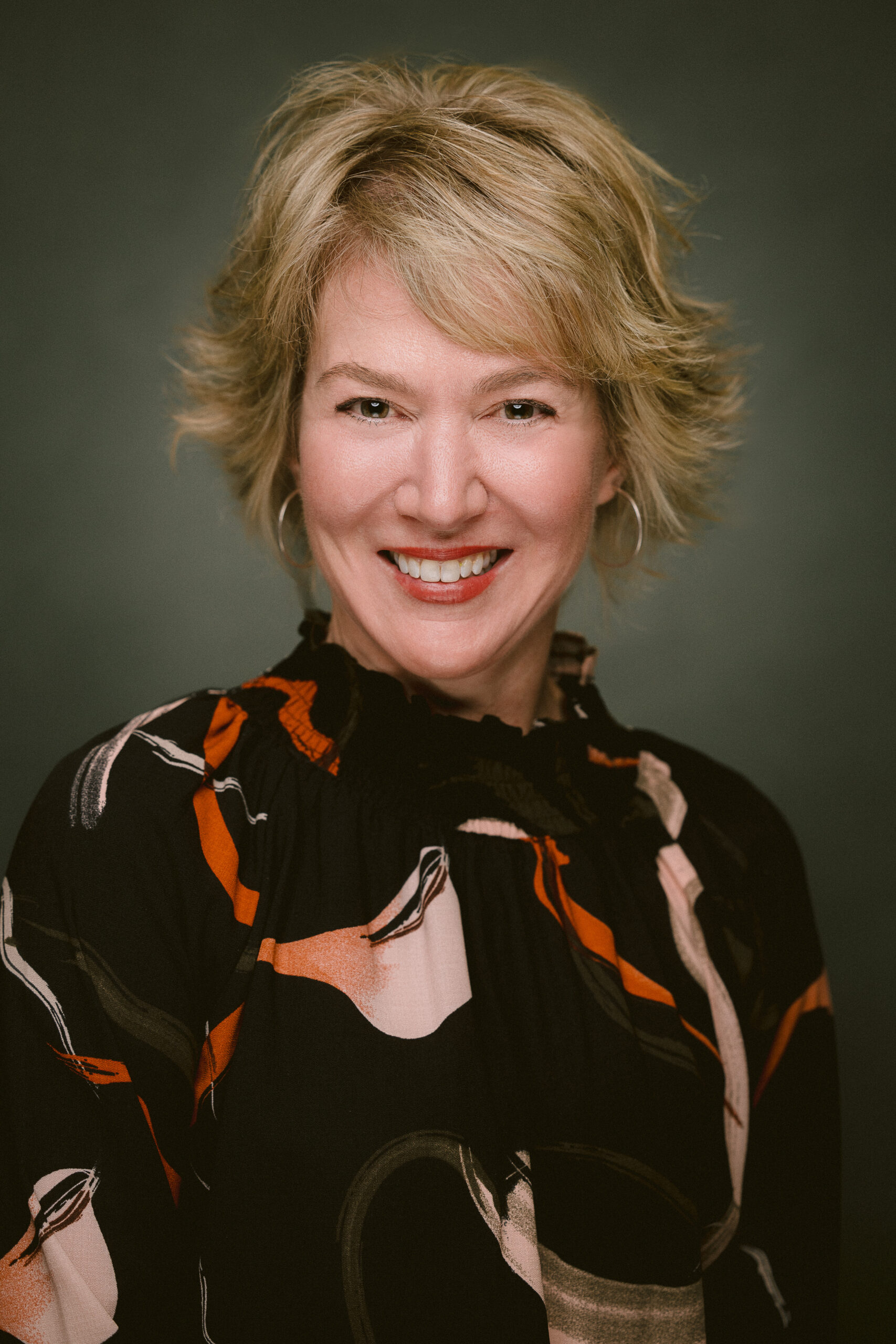PGY1 Pharmacy & PGY2 Health System Pharmacy Administration and Leadership with Masters
Residency Program Director
Previous Year Residents
-
2023
Teddy Nemunaitis, PharmD, MS
Manager of Pharmacy Operations - Colorado Children's Hospital -
Anna Lattos, PharmD, MS, BCPS
Pharmacy Manager - St. Elizabeth Dearborn Hospital -
Rachel Chiou, PharmD, MS, BCPS
Clinical Manager, Specialty & Home Delivery Pharmacy - University of North Carolina -
Tara Bracken, PharmD, MS, BCPS
Pharmacy Consultant - Visante -
2022
Christian Tulio, PharmD, MBA, MS
Pharmacy Operations Manager, University of Utah -
Chan Truong, PharmD, MS, BCPS
Pharmacy Manager, Supply Chain Services, UC Davis Medical Center, Sacramento, California -
Jennifer Booth, PharmD, MS, BCPS
Assistant Director, Outpatient Oncology Infusion at The Ohio State University Wexner Medical Center -
Henry Clark, PharmD, MS, BCPS
Pharmacy Manager in Automation and Distribution at Emory Healthcare in Atlanta, Georgia -
2021
Olga Vlashyn
Manager of Pharmacy Infusion Services Dana-Farber Cancer Institute -
William Hammonds
Ambulatory Care and Transitions of Care Clinical Manager, West Virginia University Medicine -
Lauren Aschermann
Pharmacy Manager, Pediatrics (American Family Children’s Hospital), Adult Surgery and Nutrition Support, University of Wisconsin -
2020
Andre Fernandes
Medication Access Manager, The Ohio State University Wexner Medical Center -
Lauren Stanz
Clinical Pharmacy Manager, Children's Health, Dallas -
Stephanie Salch
Pharmacy Manager, Home Infusion Services, UNC -
Morgan Forshay
Pharmacy Manager, Inpatient Oncology, The James Cancer Hospital Solove Research Institute -
2019
Marissa Stoffel
Pharmacy Manager, Sterile Products and Operations, The Ohio State University Wexner Medical Center -
Adam Smith
Oncology Pharmacy Operations Manager, Houston Methodist -
Broderick Olson
Finance Management Pharmacist, Cedar-Sinai Medical Center -
Benjamin Groves
Supply Chain Management Pharmacist, Cedars-Sinai Medical Center, Los Angeles, California -
2018
Halden VanCleave
Clinical Manager, Vanderbilt University -
Andrew Thorne
System Manager of Investigational Drug Services, UNC -
Noriko Kay
Pharmacy Manager, Home Infusion, BayCare Health System -
Emily Griffin
Clinical Manager, Acute Care Services, UNC -
2017
Erich Brechtelsbauer
Manager, Ambulatory Infusion, Emory University Hospital Midtown & Winship Cancer Institute; Atlanta, GA -
Erin Rogers Stanley
Medication Safety Officer, Jewish Hospital, KentuckyOne Health -
Benjamin Pennell
Pharmacy Manager, Central Operations, Massachusetts General Hospital, Boston -
2016
Blake Shay
Pharmacy Manager, Bay Care St. Joseph's Women’s and Children's Hospital -
Priya Sahadeo
Lead Pharmacist, Moffitt Cancer Center -
Les Louden
Pharmacy Manager, Bay Care St. Joseph's Hospital -
Rachel Hipp
Transitions of Care Manager, Cleveland Clinic
Residency Sites
As one of America’s top ranked academic medical centers, the mission of The Ohio State University Wexner Medical Center (OSUWMC) is to improve people’s lives through innovation in research, education, and patient care.
OSUWMC is a 1,506 bed multi-hospital delivery system recognized in 2021 as one of “America’s Best Hospitals” for excellence in ten specialties by US News and World Report based on quality, outcomes, and reputation.
recognized in 2021 as one of “America’s Best Hospitals” for excellence in ten specialties by US News and World Report based on quality, outcomes, and reputation.
Read about the sites
University Hospital (UH)
University Hospital (UH) is our flagship hospital with over 900 beds. UH is a major referral center for patients throughout Ohio and the Midwest, and is one of the busiest kidney and pancreas transplant centers in the world. UH is also an international center for neuromodulation research and neurological care. In addition, UH is a level 1 trauma center in addition to being the primary burn center for the region.
The James Cancer Hospital and Solove Research Institute
The OSUCCC – James strives to create a cancer-free world by integrating scientific research with excellence in education and patient-centered care — a strategy that leads to better methods of prevention, detection and treatment. Ohio State is one of 51 National Cancer Institute (NCI)-designated Comprehensive Cancer Centers and one of only a few centers funded by the NCI to conduct both phase I and phase II clinical trials on novel anticancer drugs sponsored by the NCI. As the cancer program’s 356-bed adult patient-care component, The James is one of the top cancer hospitals in the nation as ranked by U.S. News & World Report and has achieved Magnet® designation, the highest honor an organization can receive for quality patient care and professional nursing practice. With 21 floors and more than 1.1 million square feet, The James is a transformational facility that fosters collaboration and integration of cancer research and clinical cancer care.
The Ross Heart Hospital
The Ross Heart Hospital is a leader in cardiology and heart surgery and is the only nationally ranked heart hospital in the area. Each floor of the 150-bed hospital is dedicated to a specific service, which helps us provide specialized care for every patient. The Ross is one of the largest centers for the implantation of LVAD devices in the world in addition to providing heart and lung transplants.
University Hospitals East (UHE)
University Hospitals East (UHE) blends the friendly atmosphere of a community hospital with the advantages of being a part of a major academic medical center. Located on the eastern edge of downtown Columbus, University Hospital East offers renowned Ohio State services in orthopedic care, emergency services, cancer care, addiction services, ear, nose and throat care, heart care, radiology and imaging services, rehabilitation and wound healing. In addition, the OSUWMC also boasts Harding Hospital, which offers comprehensive inpatient and outpatient mental and behavioral health services in addition to Dodd Hall which is a nationally recognized and accredited rehabilitation program specializing in stroke, brain, and spinal cord rehabilitation.
The Brain and Spine Hospital
The Brain and Spine Hospital opened in the Fall of 2016 and is a state-of-the-art facility for the advanced management, care and healing of patients with neurological disorders.The hospital consists of 87 private beds and specialized units for stroke and neurovascular, neurotrauma, epilipsy, spine, chronic pain, neuromodulaton, multiple sclerosis, congnitive and movement disorders, as well as an innovative new model for acute spinal cord injuries.
The Department of Pharmacy
The Department of Pharmacy at The OSUWMC is one of the largest in the country. With over 400 employees, and a practice model that includes both clinical pharmacy generalists and clinical pharmacy specialists, our goal is the provision of outstanding, state of the art care. We advise our staff on the best use of medications, develop safeguards for our patients to prevent medication errors and develop transformative pharmacy practice in health-systems.
We are guided in this mission by our strategic plan that focuses on five key priorities: optimizing our pharmacy information system, refining our practice model, enhancing our medication safety program, establishing the pharmacy as a workplace of choice in Central Ohio and refining our academic relationships and department scholarship. Training future generations of pharmacists is a vital part of our mission. Our pharmacists serve as preceptors for our residency programs while providing experiential training for Doctor of Pharmacy (PharmD) students.
Our residency program has a 55-year tradition of excellence with our graduates being well-prepared to work at a high-level in a wide-variety of institutional and ambulatory patient care facilities. The Department of Pharmacy, in partnership with the Ohio State College of Pharmacy, strives to develop the skills of our residents and provide a residency program that is recognized nationally for the quality and excellence of its graduates.
Program History
The Ohio State University Wexner Medical Center’s Department of Pharmacy enjoys a long tradition of excellence in residency training and education. The goal is to provide a comprehensive experience for the resident so that they may assume a position of leadership in pharmacy. Over 350 leaders have graduated in its first 60 years of existence. Today, these graduates continue to advance the profession of pharmacy in various avenues across the country. We offer this legacy to those interested in the MS Residency Program at The Ohio State University Wexner Medical Center.
Master’s Program Coursework
Didactic coursework will be spread evenly across both years to allow for completion of a PGY1 certificate the first year and focus on administrative rotations the second year. Residents will participate in rotations and complete virtual asynchronous and synchronous coursework throughout each semester.
Quality Improvement Projects
Residents will be required to complete one operational audit during their first administrative rotation of the PGY1 year. Audit topics commonly involve evaluations of current processes and protocols with an operational focus. Audit preceptors evaluate the residents’ research and writing abilities, and then provide feedback on each of the audits in order to further develop and refine the residents’ skills. A medication use evaluation will also be completed during the first year of residency and this will be presented at the Vizient Midyear Poster Session and the Great Lakes Pharmacy Residency Conference.
Longitudinal Management
During the second year, residents will manage pharmacists and technicians within a pharmacy department service area with a goal of enhancing both managerial and decision-making skills. Potential service areas include but are not limited to: Surgical ICU satellite pharmacy, Ross satellite pharmacy, OSU East Community Hospital pharmacy, emergency medicine clinical specialists, transplant pharmacy clinical specialists, sterile products area, outpatient retail pharmacy, investigational drug services and the outpatient oncology infusion pharmacy.
Research
Residents are expected to complete a major research project and formally present results at Residency Conference and/or Seminar. This project may also be the same project used to fulfill the requirement for the Master’s Degree. The resident must also submit a project manuscript for publication in a peer-reviewed journal.
Additional Experiences
Beyond the didactic coursework and rotation activities, residents also participate in journal clubs, attend and present continuing education at the Department of Pharmacy’s Resident Education Series and attend local and national meetings. During the first year, residents will rotate responsibility with the Antimicrobial Stewardship Program on-call pager as well as primary code blue coverage. Additionally, all residents are required to volunteer at the Columbus Free Clinic for 12 hours throughout the year.
Rotation Experiences
During the first year, residents complete month-long rotations, which include both administrative and clinical rotations. In total, residents will complete six weeks of orientation, at least twelve administrative rotations, eight clinical rotations and the option of an offsite/elective rotation during the twenty-four-month experience. During the second year, residents are encouraged to sit for the Board Certified Pharmacotherapy Specialist (BCPS) exam.
PGY1 Learning Experiences
Required Patient Care Rotations
- Internal Medicine
- Ambulatory Care
Elective Patient Care Rotations
- See below
- Two-thirds of PGY1 are required to be spent in patient care rotations
Administrative Learning Experiences
- Medication Safety
- Medication Use
- Administration
Longitudinal Learning Experiences
- Medication Use Evaluation
- On-call
- Staffing
- Columbus Free Clinic
- Code coverage
- Resident Education Session
- Audit/Administration Project
Patient Care Rotations
| Acute Care | Ambulatory Care | Cardiology | Critical Care | Heme/Oncology |
|
|
|
|
|
PGY2 Learning Experiences
Required Resident Learning Experiences
Longitudinal Learning Experiences
|
Elective Resident Learning Experiences
|
Key Preceptors
Trisha Jordan, PharmD, MS
Chief Pharmacy Officer
Assistant Dean for Medical Center Affairs
HSPAL Residency Program Director
Amanda Hafford, PharmD, MS
Associate Director, Acute Care Services
HSPAL Residency Program Co-Coordinator
Ben Lopez, PharmD, MS, MHA, BCPS
Director, Enterprise Operations
HSPAL Residency Program Co-Coordinator
Joseph Melucci, RPh, MBA
Director, Pharmacy Informatics and Medication Safety
Ariane Schieber, PharmD
Director, Outpatient Pharmacy Services
Anneliesa Henslee, PharmD, MS
Associate Director, Specialty and Retail Pharmacy Services
Jennifer Booth, PharmD, MS, BCPS
Assistant Director, Pharmacy Administration
Melissa Snider, PharmD, BCPS, CLS, BCACP
Associate Director, Ambulatory Care
Kim Howell, RPh, MHI
Assistant Director, Acute Care and Perioperative Services
Joy Lehman, PharmD, BCNSP
Assistant Director, Non-Oncology Infusion and Medication Compliance
Julie Kennerly-Shah, PharmD, MS, MHA, BCPS
Associate Director, James Cancer Hospital Clinical Services
Steven Loborec, PharmD, MS, MPH, BCPS
Assistant Director, Finance, Supply Chain and 340B Services
Mitch Dorn, PharmD, MS
Assistant Director, Pharmacy Operations
Stephen Polley, PharmD, MPA, MS, BCPS
Assistant Director, Cancer Pharmacy and Investigational Drug Services
Morgan Forshay, PharmD, MS, BCPS
Clinical Pharmacy Manager, Cancer Pharmacy Services
Selected MS/Resident Research
- Emergency department targeted discharge prescription evaluation at an academic medical center Griffin E, Rozycki E, Jordan T, Rodis J, Neidecker M, North A
- Implementation and evaluation of pharmacist-provided injections in the outpatient pharmacy driven by private payer site-of-care policies Kay N, Wolowiec K, Hudson-DiSalle S ,Ganio M, Jordan T, Kennerly J, Neidecker M
- Cost-benefit analysis of an electronic medical record integrated, perpetual pharmacy inventory system at a large academic medical center Thorne A, Prier B, Lopez B, Neidecker M
- Prevalence and patters of controlled-substance diversion behaviors by healthcare workers: suggestions for improved surveillance VanCleave H, Weber R, Mirtallo J, Plant J, Knupp A
Benefits and Additional Requirements
Start Date: June 20
Annual Salary:
PGY1: $53,000
PGY2: $54,000
Vacation Days: 10 days per year
Staffing Requirement:
PGY1: 24 weekends
PGY2: 20 weekends
how to apply
Application Process through PhORCAS:
We welcome applications from non-U.S. citizens who have a “green card” (permanent resident status) or a current visa valid through the entire duration of the residency program. The Ohio State University pharmacy residency programs are NOT able to sponsor visas for pharmacy residents (PGY1 or PGY2).
- Letter of Intent
- Curriculum Vitae (CV)
- Three letters of recommendation
Supplemental Requirements:
- Ohio State University: Graduate School Application
Application Deadline: January 3, 2024




You must be logged in to post a comment.